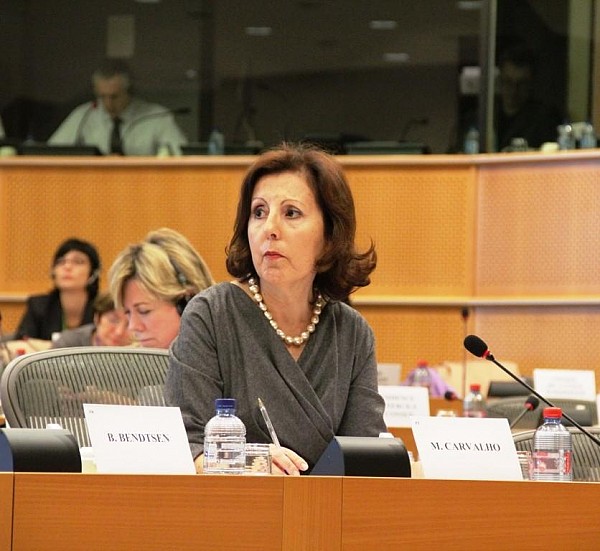Causes Financial Times Executive Forum - The Future of Energy Series
Maria da Graça Carvalho was invited to a Financial Times Executive Dinner Forum on the Future of Energy, organised in association with Shell in Brussels. The event was chaired by the FT's Environment Correspondent PilIta Clark, and counted with the participation of Günther Oettinger, EU Commissioner for Energy.
The theme of the seminar was A New Climate and Energy Framework for Europe 2030. Europe has sets itself an ambitious objective of decarbonising its economy while at the same time ensuring the competitiveness of industry and making sure the EU has a secure supply of energy. The 2030 climate and energy framework is critical: Firstly it is important to give investors the stability required for the necessary long investment cycles which are at the heart of the energy infrastructure. Secondly, a clear and simple 2030 framework will create additional demand for the most cost efficient low carbon technologies. This can ultimately lead to lower energy prices which can stimulate new opportunities for jobs and growth. Thirdly, an international agreement on climate mitigation is expected to be concluded before the end of 2015. The EU will therefore need to clarify its own role and ambition level ahead of this date.
The EU's current climate and energy framework (the so-called 20/20/20 package) sets binding targets for renewables, greenhouse gas emissions and energy efficiency to 2020. Discussions in Brussels, among policy-makers and business, are now turning to what the 2030 framework will look like. Opinions are divided between those who support a continuation of the triple targets approach and those who favour a simpler framework with an overarching economy wide GHG reduction target. Europe's growing use of coal in power generation reflects wider questions about the role and impact of EU policy versus the impacts of global energy markets and events such as the shale gas revolution in the US. The opposition of coal-rich countries such as those in Eastern Europe to the codification of emission targets adds another layer of complexity to the discussions. Which of the proposed solutions -- CO2-only policy or triple targets -- will best achieve the key objectives of emissions reduction, along with energy security at affordable cost?
